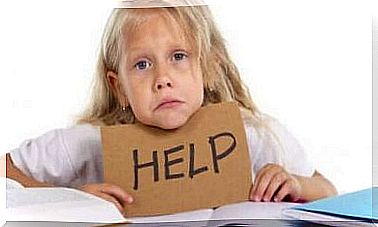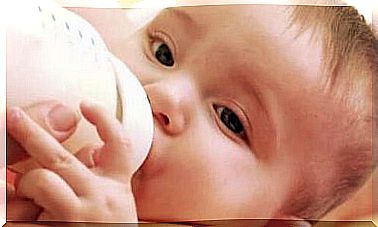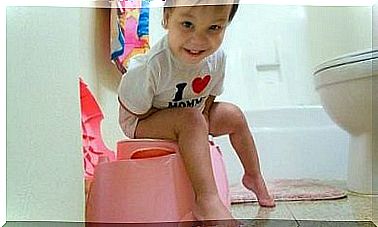Children With Low Frustration Tolerance
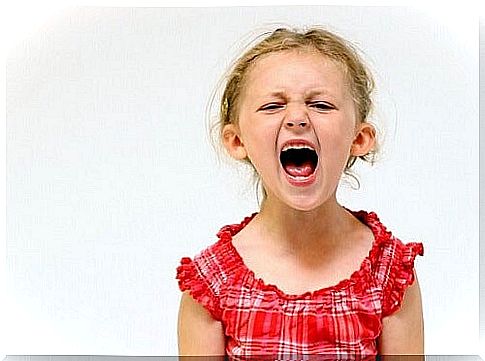
For children to be able to effectively face the different circumstances of daily life, it is necessary that they learn to tolerate frustration from an early age. We must understand that frustration represents an experience of the emotional type that manifests itself when a project, an illusion or a desire is not fulfilled.
This generates a set of emotions such as sadness, annoyance, anxiety or anguish. Each child can react and face these situations differently. Therefore, it is important to know how to identify children with low tolerance for frustration.
Characteristics of children with low frustration tolerance
When we prevent our children from feeling frustrated in any situation or we make it up to gratify them all the time, we are acting in the wrong way. One way to favor the integral development of the little ones is to help them to assume that in life there are situations of both failure and success.
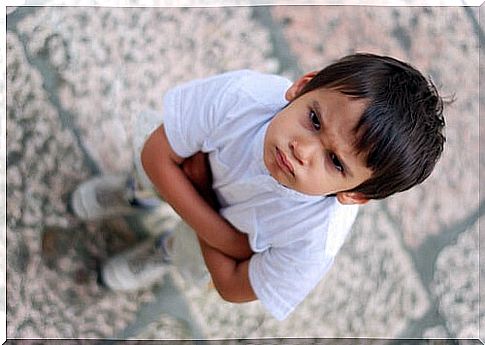
- A child with a low tolerance for frustration is more impatient and impulsive.
- It’s harder to control your emotions.
- Children with low frustration tolerance are very demanding.
- They try to immediately satisfy their needs, so that, when their requirements are delayed, they can easily cry and tantrum.
- They are more likely to develop depression or anxiety when facing important difficulties or conflicts.
- The child has a reduced capacity for adaptation and flexibility.
- They think they deserve everything and that the world revolves around them, coming to think that the limit represents something unfair in front of their desires. It’s hard for them to understand the reasons why they don’t get everything they want.
- Children tend to think it’s black or white, for them there’s no middle ground.
Causes of Low Frustration Tolerance
Some of the most frequent causes of children with low tolerance for frustration are shown below:
- Obtaining your satisfactions immediately. The child gets everything he wants for the moment, which fundamentally implies his inability to delay gratification. The child would rather receive a small reward right away than wait for a larger one.
- It lacks limits within education. Behind these behaviors, there are often situations of education without norms and the children do not know a “no” for an answer.
- Parents who make decisions for them. Due to the fact that choosing between different options implies resignation and a risk, it is often the parents who want to decide for their children to prevent them from experiencing the problem.
How to help children with low frustration tolerance?
Helping children with low frustration tolerance is very simple, here is some advice:
- You should be aware of the specific reasons that cause this reaction.
- Explain as often as necessary that it is normal to make mistakes, and teach them that expressing feelings is a way to deal with situations that cause frustration.
- It is essential that you make sure that the child learns to differentiate his needs from his desires, so that he can better control his impulsiveness.
- As an adult, you should be able to set goals and boundaries taking into account the child’s abilities and age, thus avoiding unnecessary frustration.
- Sometimes, to solve difficult situations, a little humor can be a great help.
Activities for Children with Low Frustration Tolerance
Therapies and exercises for children with low frustration tolerance are excellent support tools to encourage the child’s full development so that in adulthood he can satisfactorily deal with frustration.
Therapies for Children with Low Frustration Tolerance
- Relaxation techniques. You can teach the child relaxation techniques so that they can face adverse events positively when they are relaxed. Teach frustration tolerance through bodily relaxation.

- Teach them to distinguish frustration. It is essential that children with low tolerance for frustration can identify the moment when this feeling appears.
- The child must learn to ask for help. It is necessary to teach how to find a solution first. If you feel frustrated when doing a certain task, teach the best way to avoid the feeling of frustration: what could you do before giving up on the task or getting angry?
Exercises for children with low frustration tolerance
- Reinforcement of appropriate attitudes. It is critical that the child receives a compliment when their response is to use an appropriate strategy.
- Change the task. Show some alternative other than achieving the goals.
- Personify roles. You can play a game with the child in which you play out a frustrating event. Let her first interpret the frustration and then do the opposite. Encourage her to do positively with herself and find the best way to solve the problem.
In many cases, caring and understanding represent the greatest strategy to avoid low frustration tolerance. Since there are situations in which it cannot be avoided, the most important thing is to teach your child to identify it so that it is easier to channel it and ask for help when needed.
